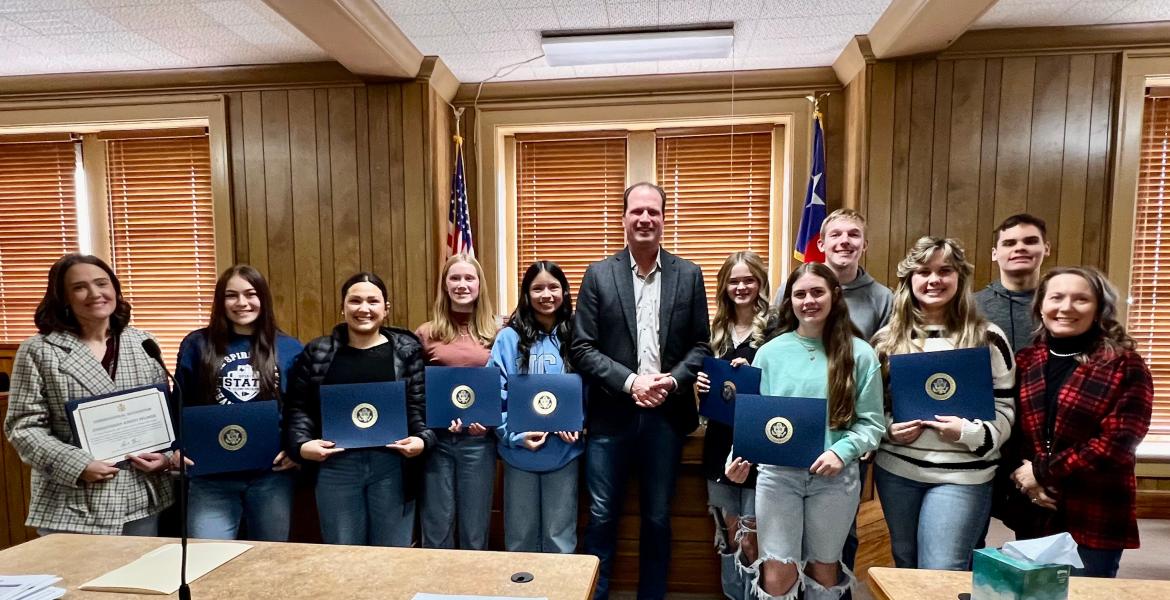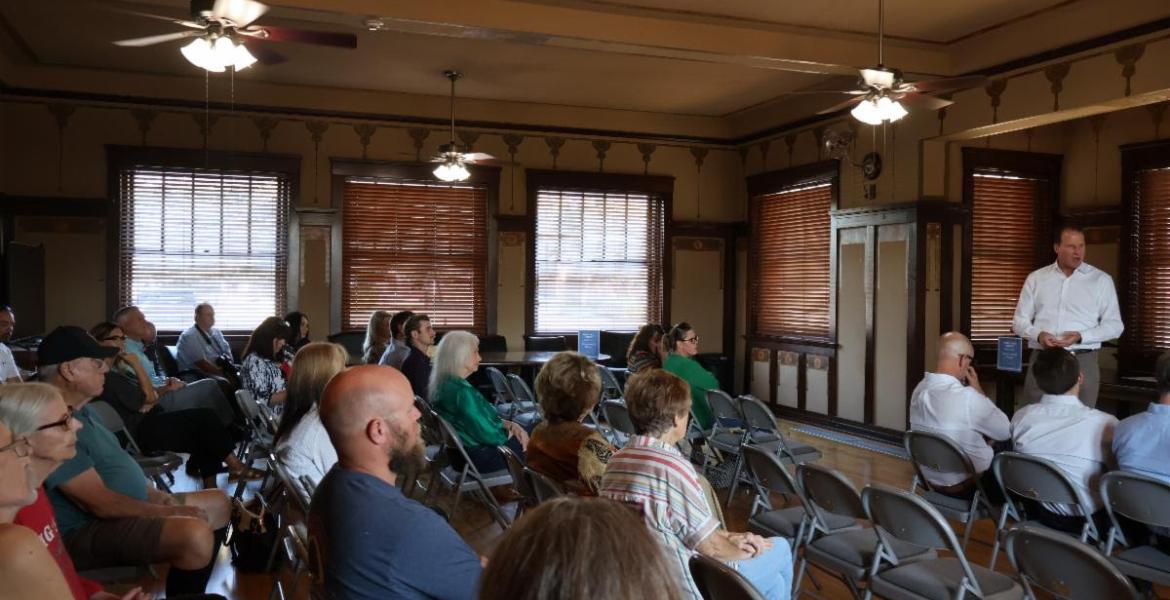AUSTIN, TX — Both the Texas House and Senate, run by their respective Republican majorities, have proposed sweeping voting integrity legislation that doorstops Democratic Party efforts to expand voting opportunities. Republicans claim the measures enhance the security of voting in Texas while Democrats claim the measures restrict voting opportunities, particularly by persons of color.
While the Democrats are talking disenfranchisement, the Republican proposals, too, are aimed at minimizing disenfranchisement. That is, if a ballot is cast illegally, as many Republicans have claimed was done across the country during the November 3 presidential election last year, each illegal vote cancels a valid and legal vote. Margot Cleveland argued in a post on The Federalist that, “Illegal voting might not be glamourous and it definitely doesn’t garner the headlines, but every illegal vote counted cancels out a lawfully cast ballot, thereby disenfranchising the latter voter.” More here.
The Texas Republican legislative leaders have proposed 8 new rules for handling future elections in Texas. A few of the provisions are aimed at ending entrepreneurial voting procedures initiated in Harris County (Houston) during the 2020 presidential election.
The Republican legislation will ban drive-thru voting. Harris County tested the process in November and found that 10 drive-thru voting centers attracted 10 percent, or 127,000, of in-person voters. Republicans argue that in-person voting inside a voting booth is better because no one else is inside the voting booth who can coerce or influence the voter. Inside a car, however, an activist can be located in the driver’s seat, back seat or passenger seat to exert undue influence on the voter. Such a practice is called “forced assistance” and is alleged to be a popular Get Out the Vote (GOTV) tactic by leftist activists to sway elections.
The Republican legislation will ban 24-hour voting. This is another service pioneered in Harris County during early voting leading up to the November election. Republican concerns are that public confidence in the polling places can be a distraction and can lead to claims — true or not — of chicanery that could happen during the dead of the night. Still, the Republicans propose to extend early voting hours from 6 a.m. until 9 p.m. in the Texas Senate version or 6 a.m. until 10 p.m. in the House version. Democrats want 24-hour voting because, some Democrats argue, persons of color are more likely to vote in the wee-morning hours. On a more pragmatic side, San Angelo Rep. Drew Darby said 24-hour polling locations will be expensive, especially for rural counties in his District 72.
“Most of this is being driven by Harris County,” Darby said. There are 2.4 million voters there.
The Republican legislation will ban the distribution of mail-in ballot applications. Both Senate and House bills ban the unsolicited distribution of mail-in ballot applications. The bills also prohibit the use of public funds “to facilitate” mail-in ballot distribution, according to the Texas Tribune. The ban also prevents counties from providing ballot applications to local activist groups for general distribution. The Republican plan is to more closely guard ballot applications to make sure the ballots are distributed to Texans who can legally vote. In Harris County, the Texas Supreme Court blocked county officials’ attempt to preemptively mail ballot applications to all 2.4 million registered voters for the November 2020 election. The voter rolls in Harris County are in shambles, Republicans argued. There is not way to insure a ballot application is actually being mailed to a legal Texas voter.
Stricter ID requirements for voting by mail are proposed. The bills from both houses will require either a driver’s license number or, lacking a driver’s license, the last four digits of the voter’s social security number, when applying for a ballot. The ID numbers must match on the ballot returned. This new restriction is atop the current requirements for voting by mail in Texas: One must be 65 or older; be out of the country, be in jail yet otherwise still eligible to vote, or cite an illness or disability preventing in-person voting. Republican angst over mail-in ballot harvesting and the potential accompanying fraud is driving their desire to place more restrictions on mail-in voting. Currently, Texas has a signature matching process to verify ballots. In 2020, Democrats had perfected the using mail-in voting to enhance their GOTV efforts.
A process to correct and count rejected ballots. The bills from both houses contain language that will create a process to correct ballots ordinarily rejected due to a missing signature or if the local election officials determine the ballot should be rejected.
Voter roll citizenship checks would be required. The senate version of the bill mandates that the Texas Secretary of State compare the statewide voter rolls with the DPS driver’s license database. If a registered voter is recorded in DPS records as a non-citizen, that voter must prove their citizenship to remain on the voter rolls. The bill’s language gives the secretary of state authority to create the policy.
The Crystal Mason exception. In 2016, a Tarrant County resident who was ineligible to vote because of a federal felony conviction cast a provisional ballot. She was charged with a crime. This exception will require evidence of a voter fraud crime to go beyond just casting a provisional ballot. In the Mason case, the defendant claimed she did not know she was ineligible to vote even though she was on supervised release from prison. The House provision will also require judges to instruct those convicted of a crime of their ineligibility to vote.
Poll watcher protections would be enhanced. Both bills offer volunteer poll watchers from either political party more autonomy inside polling locations. Both bills have language that allows “free movement” within polling locations. The current law is more restrictive, stating that poll watchers only be allowed to be “conveniently near” election workers. The provision adds criminal penalties for increasing poll watchers’ distance from workers arbitrarily or obstructing a poll watcher’s view of counting proceedings. Republicans complained of obstruction from more closely observing election workers in many of the swing states during and after the November 2020 elections.
Rep. Darby said while the Texas Democrats are absent, House Speaker Date Phelan has locked the remaining Republican representatives inside the House chambers to await the Democrats’ return. Tuesday, Republican House members were served a catered lunch of sandwiches while sequestered inside the chambers. Darby does not believe the Democrats will return in time to complete the special session called by Gov. Greg Abbott to address not only the election integrity bills, but also a myriad of other unrelated issues.
These other issues include bail reform, benefits for retired teachers, Child Protective Services reform, and Article X funding. No business by the House can be accomplished without a quorum, and some Democrats are needed to return in order to get one.
President Joe Biden politicized the Texas Democrats’ flight from Austin by calling the Texas Republicans’ voter integrity bills “un-American” and “un-Democratic” and praising the Texas Democrats’ courage.
“The is all about getting Washington to nationalize our elections via (US) House Bill 1,” Darby said. US HB 1, titled “For The People Act,” is described as an assault on federalism and democracy by conservatives. The federal bill if enacted into law would prevent voter roll checks; mandate online voter registration; require same-day voter registration; mandate automatic voter registration of people who apply for unemployment benefits, Medicaid, Obamacare; or register for college. It will automatically register prisoners upon their release. The bill also creates a safe harbor against the prosecution of a noncitizen who reported they have been accidentally registered to vote. More ominously, the bill prohibits voter ID laws and disallows basic security checks of mail-in ballots. The US bill will encourage voter harvesting as long as the harvesters are not compensated per ballot. Curbside voting, ballot drop boxes, and a mandatory 15 days of early voting will be mandated. The bill will also mandate the registration of citizens as young was 16, though 16 year olds must wait until they turn 18 to vote. The bill also removes the authority of state legislatures to redraw voting district maps. Instead, unelected “commissions” would redraw the maps after the census held every 10 years.
HR 1 is stalled in the U.S. Senate because the Senate requires a 60-vote majority to override the Republican filibuster. Biden is being pressured to throw more of his weight behind the effort to eliminate the Senate filibuster so HB 1 will pass with a simple majority. Democrats have a 51-50 majority in the US Senate with Vice President Kamala Harris’ tie-breaker vote (two senators are independents and expected to vote with the Democrats). Two Democratic Party senators, Joe Manchin of West Virginia, and Krysten Cinema of Arizona, have so far rejected their colleagues’ calls to eliminate the filibuster.
Now the Texas Democrats, who flew to Washington DC on a chartered jet Monday to break quorum in the Texas House and Senate, are being used as props for the national debate over HB 1. Darby doesn’t expect they will return before the special session ends during the first week of August. He mentioned there is a big fundraising effort by progressives to pay for the Democrats’ expenses while in hiding.
Each the Texas House and Senate must have two-thirds of its members, or 100 representatives and 21 senators, present to create a quorum. There are 83 Republicans and 67 Democrats in the Texas House and 18 Republicans and 13 Democrats in the Texas Senate.
Darby said before the Democrats nationalized the Texas voter integrity bills, there was good movement on reaching a compromise with the Democrats.
“I had some Democrat members actually say to me about some of the provisions, ‘that actually makes sense,’” he said.
The politics behind the fleeing Democrats is also helping Gov. Abbott. According to the Texas Tribune, Abbott’s special session has energized Republican donors. He raised $18.7 million for his re-election during the final 10 days of June, the Tribune reported. Abbott’s poll numbers are quite good too. The Tribune reported that Abbott’s internal polls show him leading challenger Allen West 69-13 percent. Sen. Don Huffines and Texas Ag Commissioner Sid Miller each had 3 percent. The Republican primary is March 1, 2022.
Subscribe to the LIVE! Daily
Required






Post a comment to this article here: